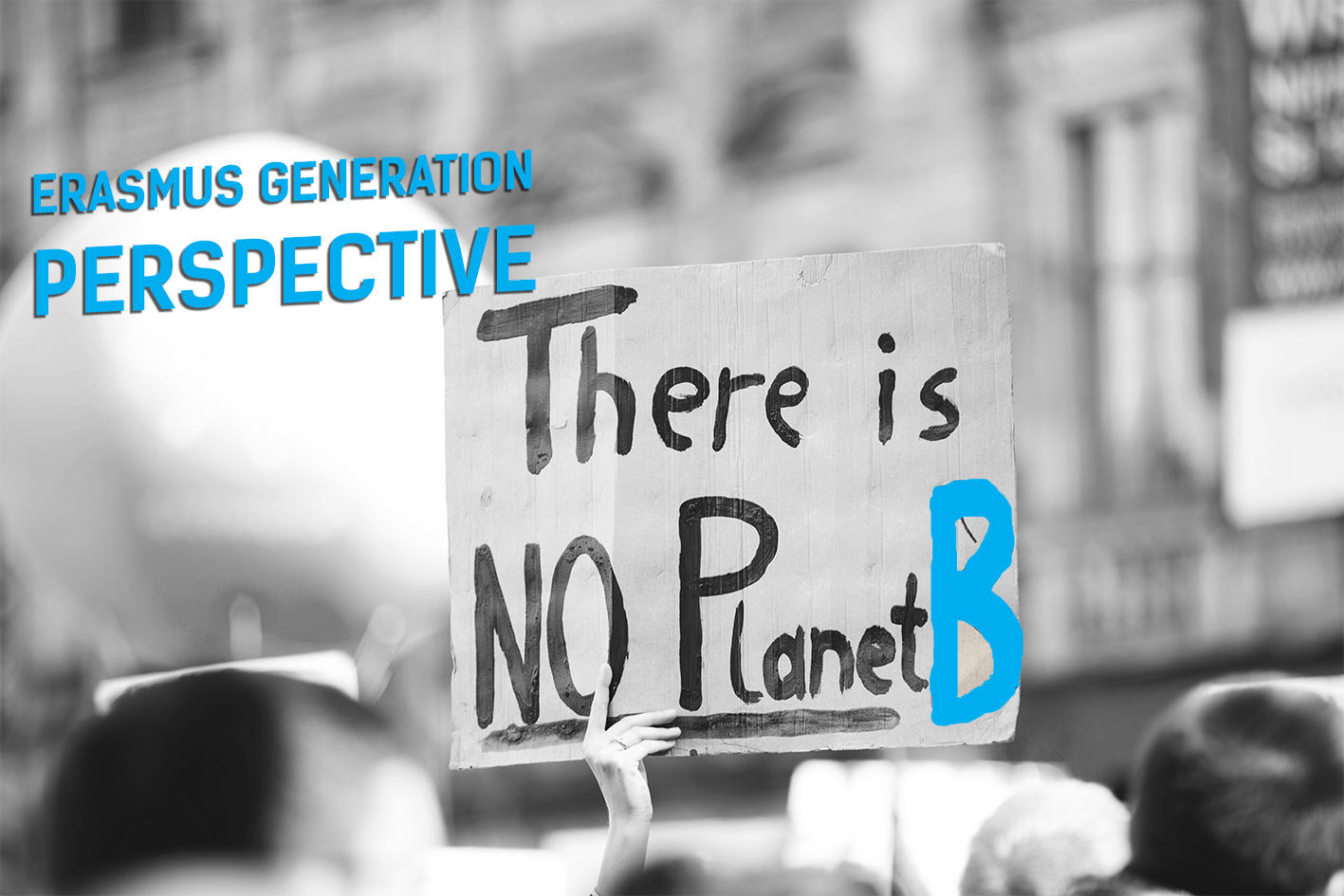
* Erasmus Generation Perspective articles are written by ESN volunteers to share the student voice on current policy developments in the field of international education. The text represents the authors' individual perspective and not an official statement of the Erasmus Student Network.
From the 1st to the 12th of November the 26th Conference of the Parties (COP) was celebrated in Glasgow, Scotland UK, the first one since the pandemic outbreak and the most followed and mediatic, as the effects of climate change are already affecting the lives of millions around the world. 17.000 officials, press and activists from all the nations of the world gathered in the Scottish city for these two weeks with the will of setting new principles to follow in the next years with the goal of decreasing greenhouse gas emissions and saving our planet from a catastrophe. Being the goal of not surpassing the 1.5ºC increase of average pre-industrial level temperature the threshold for the survival of our species. Not achieving this limit and going towards 2ºC average temperature increase would have devastating irreversible effects on the planet, such as the death of 99% of coral reefs, the loss of the West Antarctic ice sheet and the inhabitability of most of the countries near the Equator. We are currently 1.1ºC higher than pre-industrial levels, so the time we have is quite limited. However the solution is not that difficult, and it comes with the reduction of the use of fossil fuels, a halt on deforestation and the protection of wild space to let wildlife thrive and recover.
The emblems of the United Nations and COP26.
I had the privilege to attend as an observer with a credential from the World Ocean Network, a European organization that brings together ocean enthusiasts from all around the continent and is willing to expand further from its borders as the ocean is present all around the globe. It was the first time I attended an event of this magnitude and this atmosphere. The output of the event has been trascendental in the way I face the climate emergency, sustainability and how I can exercise that through my local ESN section.
The action zone, the most crucial space of the Blue Zone at COP26.
It was profoundly touching to have the opportunity to meet young leaders from all the countries of the world: Uganda, Kenya, South Africa, India, Balochistan, Tuvalu, Philippines, Brazil, Chile, Italy, France, Germany, USA, Canada, Panama, New Zealand, and many more. Listening to their stories, their challenges, their struggles, their fights and their hope was moving, awakening and by far the most positive part of COP26. It was clear that we are all in this together and that this reality affects us all. Furthermore, every individual from every country can take active participation and influence their community in a positive way to make its environment more sustainable. Moreover, through the acknowledgement of our position and the implications of our activities we can help those who are in a much more difficult situation than ours where climate change represents a threat for their daily life.
Throughout the two weeks there were a diverse set of actions and demonstrations usually organized by the youth and indigenous groups at the venue, demanding bolder actions from the representatives in the negotiation rooms. It was clear that we are experiencing a change in the leadership positions of this matter, being the underrepresented communities, women and youth the ones who are shouting for a more just future and little by little they are reclaiming the space they deserve.
Youth protesting on Glasgow streets on Saturday 6th of November.
Without any doubt, it is through a more inclusive society, with more equality and justice, where every group is on the table of decision making how better judgements can be made and the construction of a stronger society is built. Being the Erasmus plus experience the perfect tool in this enterprise of future forging, having the opportunity to exchange cultures, behaviours and procedures from multiple locations in one same platform can create incredibly productive scenarios to find solutions and joy to the community. It could be said that every Erasmus city is celebrating a semester long or year long COP, where actors from different regions of the world engage and contribute locally, through activities, workshops, training and a mixture of cultures.
“Actors from different regions of the world engage and contribute locally.”
Furthermore, it is not only important to celebrate the diversity of experiences and practices when participating in ESN activities but to also remember the role this organization has and the power of global change-making it can exercise. Through the social impact that identifies us we have the unique opportunity to shape the world, to touch the hearts of international students and locals, to create more sustainable cities, to influence decision-makers and to make sure that we use every bit of our youth energy for the improvement of the world.
Finally, when asking the citizens from Glasgow what the best thing about the city is they all concur that it is the people, and I agree with them as I was warmly welcomed by the local section, ESN Strathclyde, during my time in Glasgow. However, for those days people from all around the world were in Glasgow, Glasgow was the crystallization of the whole humankind, and the COP26 has not finished yet, the COP26 is being lived today, tomorrow, everyday, we are all COP26 and we are all active players in the game of combatting the climate emergency.

Follow ESN